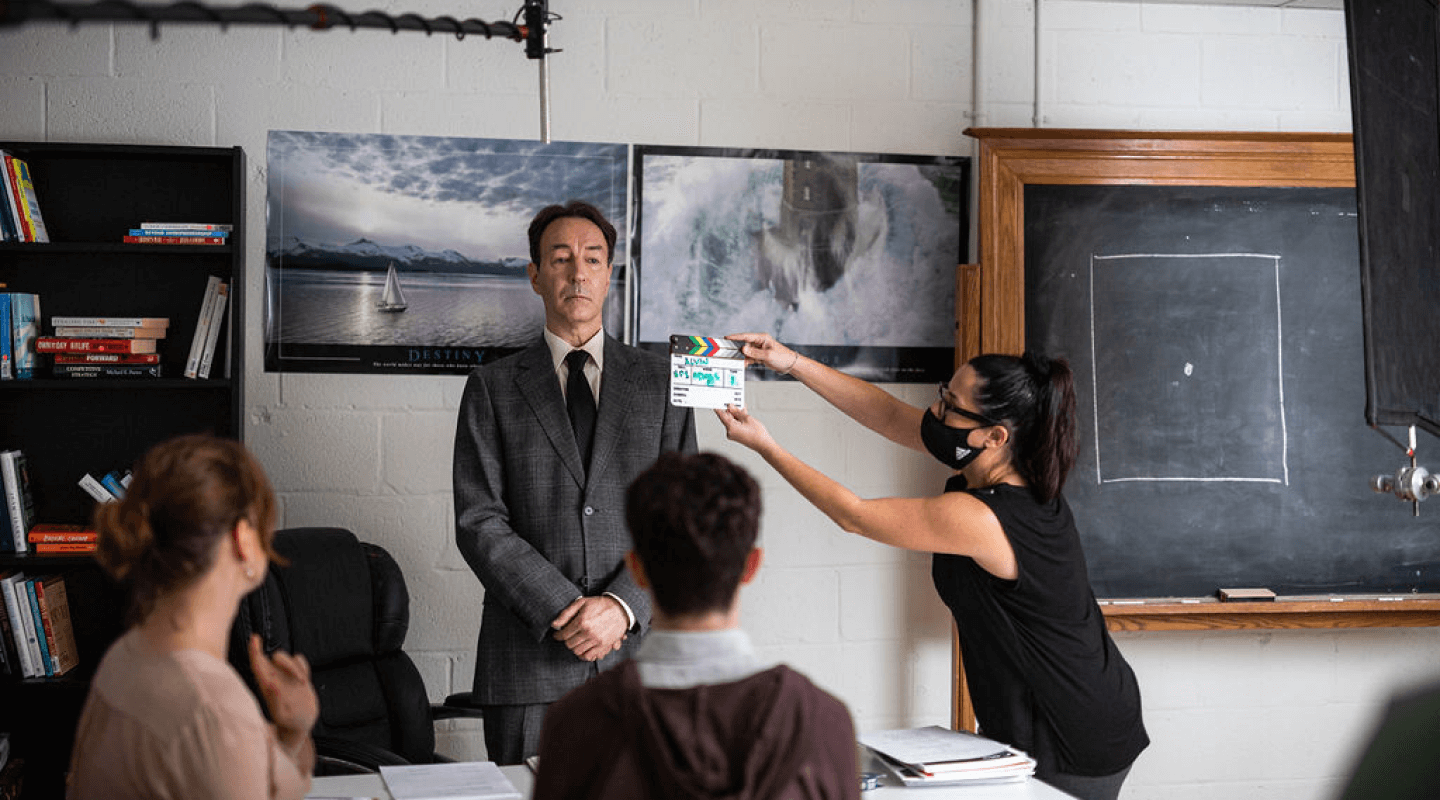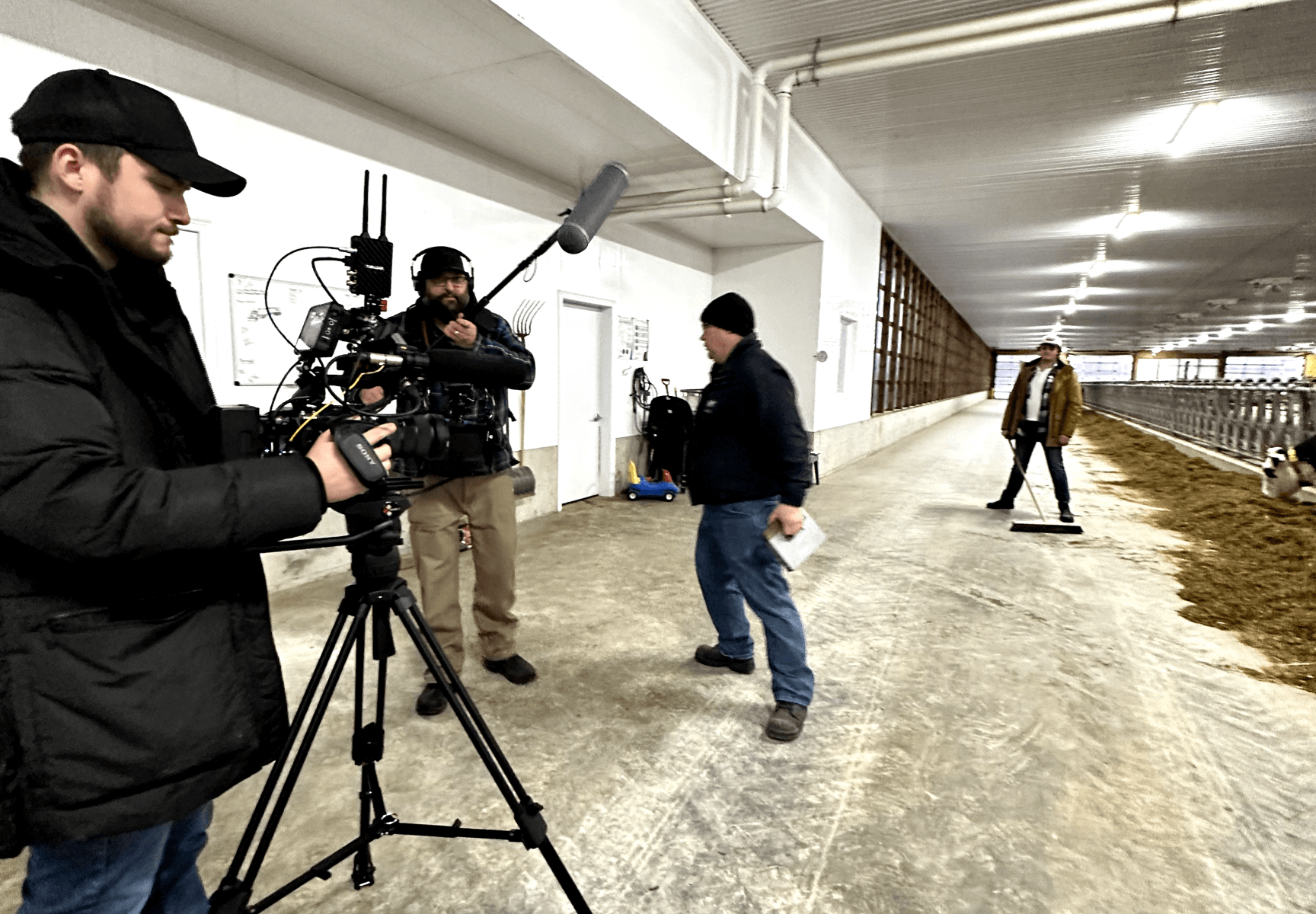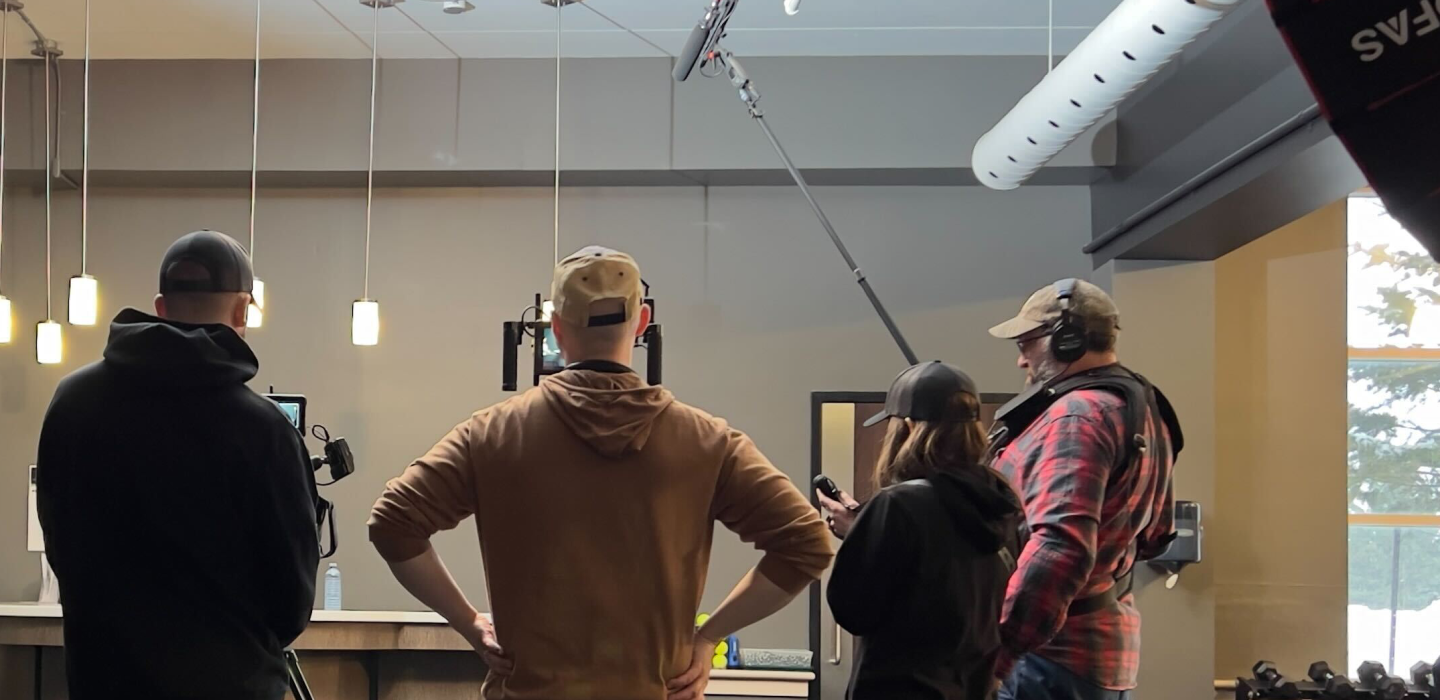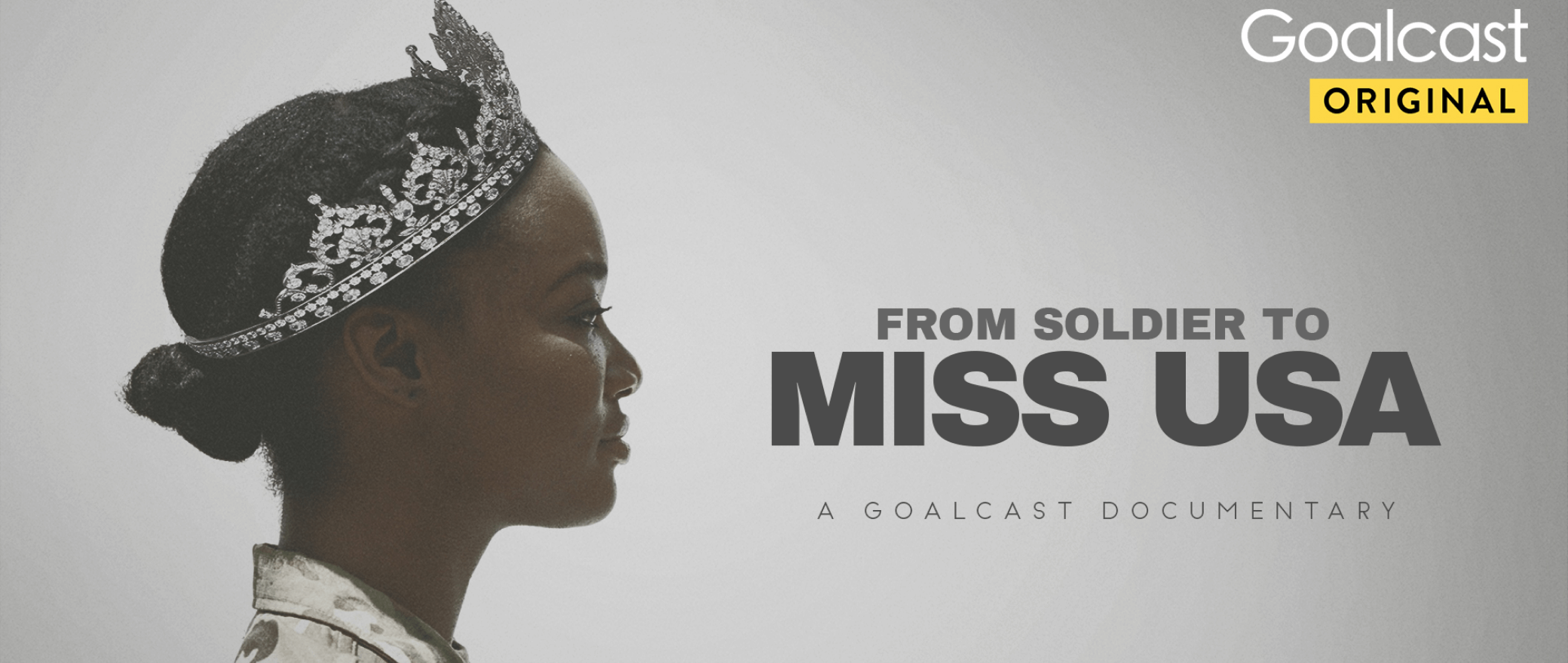Goalcast


When I found out how iconik, LucidLink, and Backblaze connect so you can just click a button to remove and add files, I knew it was exactly what we wanted… It just seemed like Backblaze was a more streamlined, easier way to do what we needed.
Dan Schiffmacher, Production Operations Manager, Goalcast
When the empowering media company, Goalcast, expanded into original content, the company’s existing systems weren’t organized or robust enough to support the quality and quantity they were aiming for. The distributed team needed a standardized process for receiving footage, seamless remote access to video files, and an active archive of completed files ready for re-cutting to ultimately be shared on YouTube, Facebook, Instagram, Snapchat, TikTok, and the Goalcast OTT app.
Goalcast combined LucidLink’s cloud-native network attached storage (NAS) system, iconik’s media asset manager (MAM) and uploader capabilities, and Backblaze B2 Cloud Storage to create a powerful media workflow infrastructure. The company’s content team uploads raw footage directly into iconik and inputs critical metadata. Original files are automatically stored to Goalcast’s Backblaze B2 Bucket, transcoded versions are available for editors in LucidLink, and, once editors complete their work, final assets are stored in Backblaze B2.
These custom integrations mean the possibilities are endless for Goalcast. The company now saves about 150 hours in elapsed time and manual effort per month. They’ve also eliminated the constant stress of wondering where footage lives and how to access it; as soon as a file is uploaded, it’s securely stored in Backblaze and accessible to anyone on the Goalcast team regardless of where they work.

Goalcast is the world’s leading empowering company specializing in the production of transformational speeches, documentaries, and original short films. The company inspires its 70 million member global community and over 700 million monthly viewers on YouTube, Facebook, Instagram, Snapchat, TikTok, the Goalcast OTT app and website. With four different franchises, Goalcast seeks to inspire viewers around the globe to take control of their lives and live the impossible.

When your media company exists to inspire millions of viewers across the globe, you want the teams creating your content to walk the walk and talk the talk. But the process of producing Goalcast’s feel-good stories didn’t feel very good for Dan Schiffmacher. Before he grew into the operations role, he was a full time video editor pointing out some of the company’s more serious process problems.
Without the right systems in place, Goalcast found that expanding its original content arm made for messy production processes. Field teams were sending in footage on physical hard drives or through Dropbox and WeTransfer links. Hard drives shipped by international teams would sometimes get caught up at customs checkpoints and never make it to their destination.
Meanwhile, Schiffmacher was simultaneously running out of storage space and bandwidth. The overly complex setup meant he had to overload two computers in Goalcast’s Montreal headquarters office with 10 hard drives to back up the raw footage to a NAS. Once he left the office, he had to remote in to access footage, coordinate with someone on-premises who could physically plug in the drive he needed, create mezzanine files to give editors access to the footage, and then store all the content files back on the NAS.
Schiffmacher wanted to standardize the process of receiving footage, make both raw footage and finished videos easier to access, and eliminate costly and frustrating complexity. Building out a server wasn’t an option because Goalcast was moving to a decentralized structure with distributed teams and remote collaborators all over the world. “We had hard drives piling up and our NAS was filling up quickly. I knew there had to be a better way.”


We had hard drives piling up and our NAS was filling up quickly. I knew there had to be a better way.
Dan Schiffmacher, Production Operations Manager, Goalcast
That better way was the way of cloud storage combined with media asset management. Between different content teams, there might be up to four shoots happening per week that each generate up to 1TB of footage. And that output volume is only expected to grow. Editors need to be able to access that raw footage wherever they are, and approvers need access to finished content files. The Goalcast team re-edits videos frequently, so once a piece of content is complete and published, it still needs to be easily accessible. And at the end of the day, secure, reliable backups are increasingly important as Goalcast’s content archive continues to grow.
To meet those needs, Schiffmacher spent March-September 2022 transitioning Goalcast’s entire ecosystem to LucidLink, a high-performance, cloud-native NAS solution. During that time, he started testing iconik as a potential MAM solution. A plug-in connecting iconik and Backblaze B2 Cloud Storage was particularly attractive to Schiffmacher.
“When I found out how iconik and Backblaze connect so you can just click a button to remove and add files, I knew it was exactly what we wanted,” Schiffmacher says. With his mind already made up, Schiffmacher prepared a comparison chart to get the Goalcast CFO on board. He pitted Backblaze against the platforms they’d already been using for storage and collaboration, including Google Drive, Dropbox, and Frame.io. Schiffmacher also included Amazon on the comparison chart, even though he had decided against using it based solely on the learning curve required to become proficient with AWS tools.
“For me, it was more of a formality,” says Schiffmacher. “I knew I wanted to go with Backblaze, I just had to convince our head of finance. It just seemed like Backblaze was a more streamlined, easier way to do what we needed.”

The factor that solidified Goalcast’s decision to go with Backblaze was how easy and intuitive it is to use. “I’m a creative person first, who’s gotten into more of the operational side of things,” says Schiffmacher. “If I can do it, I’m sure others can as well.” He spent about an hour setting up Backblaze and connecting it to iconik and LucidLink, and he was off to the races. Here’s what Goalcast’s workflow looks like now:
Because Schiffmacher got his start as a video editor himself, he understands the needs of the people using the system he’s building. “Most of the team we work with are creatives, so we need to make it as easy as possible for them to understand,” he explains. The ability to select Backblaze B2 as the storage option in iconik and reconnect finished video to raw footage with just a few clicks makes editors’ lives easier and cuts down on the time Schiffmacher has to spend training and managing the creatives he works with.
Goalcast also uses Backblaze to store meeting recordings in support of their growing distributed team. The company holds two all-hands Zoom meetings every week, and they are automatically recorded and stored in a Backblaze B2 Bucket that is scanned by iconik each week, so that any employee who misses out can catch up on their own time.
Lastly, Backblaze has allowed Goalcast to create an active archiving strategy. Once a year, Schiffmacher backs up all the finished projects from that year to Backblaze and removes them from LucidLink. If anyone needs to access project files from a previous year, they’re still hot and readily accessible (without clogging up NAS space unnecessarily).


You can get lost in the weeds of tech companies and storage solutions. It can hurt your brain. The sweet spot is these three—iconik, LucidLink, and Backblaze—and how they work together.
Dan Schiffmacher, Production Operations Manager, Goalcast
Implementing the trifecta solution of Backblaze, iconik, and LucidLink has completely changed Schiffmacher’s day-to-day. Having a standardized process allows him to push back when production teams want to start sending in drives or file transfer links. Goalcast now runs on an established and reliable system from receiving footage all the way to publishing content.
“You can get lost in the weeds of tech companies and storage solutions. It can hurt your brain. The sweet spot is these three—iconik, LucidLink, and Backblaze—and how they work together,” he said.
Schiffmacher saves a day of elapsed time and about half a day of busy work per shoot, totaling about 150 hours in elapsed time and manual effort per month, since he no longer has to encode footage received on hard drives and do the logistical gymnastics that was previously required to get files in the right place at the right time. He’s also eliminated a huge amount of stress: “Once the files are there, they’re there,” he says. “It’s uploaded, now we can get to work on it. It’s taken the stress out of the process and allowed me to move onto other things.”
With that recouped time and energy, Schiffmacher is focused on fine-tuning the editing process and establishing standards for the kind of content Goalcast produces. Because Backblaze is so affordable, Schiffmacher hopes to continue optimizing his spend by moving more files off of LucidLink and into Backblaze B2. He’s also planning to migrate other Goalcast teams onto this new production operations workflow. “This was a perfect solution for where we are, and it can grow with us, too,” says Schiffmacher. “We love that we can scale with it.”


This was a perfect solution for where we are, and it can grow with us, too. We love that we can scale with it.
Dan Schiffmacher, Production Operations Manager, Goalcast

The Backblaze B2 Storage Cloud is purpose-built for ease. It offers always-hot, S3 compatible object storage that supports your workflows via third-party software integrations, APIs, CLI, and web UI. And it’s priced for easy affordability at rates a fraction of other cloud providers. Businesses in more than 175 countries use the platform to host content, build and run applications, manage media, back up and archive data, and protect and recover from ransomware.